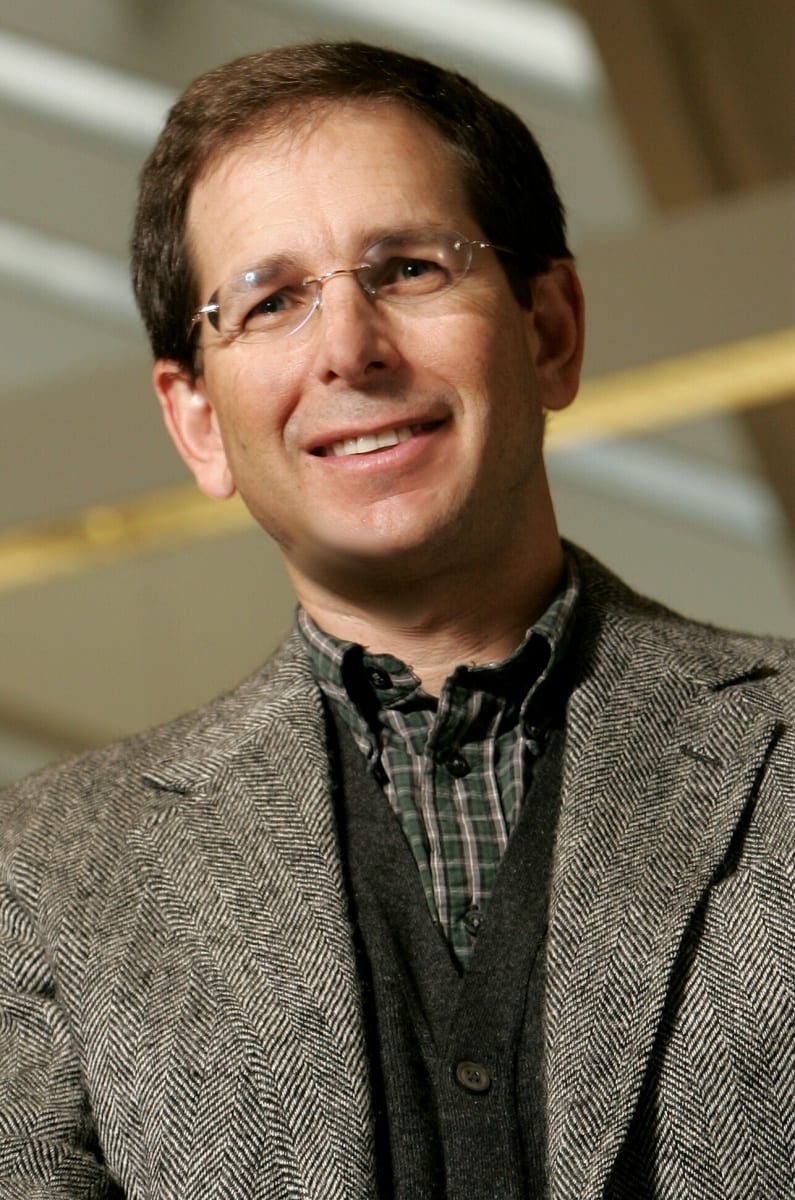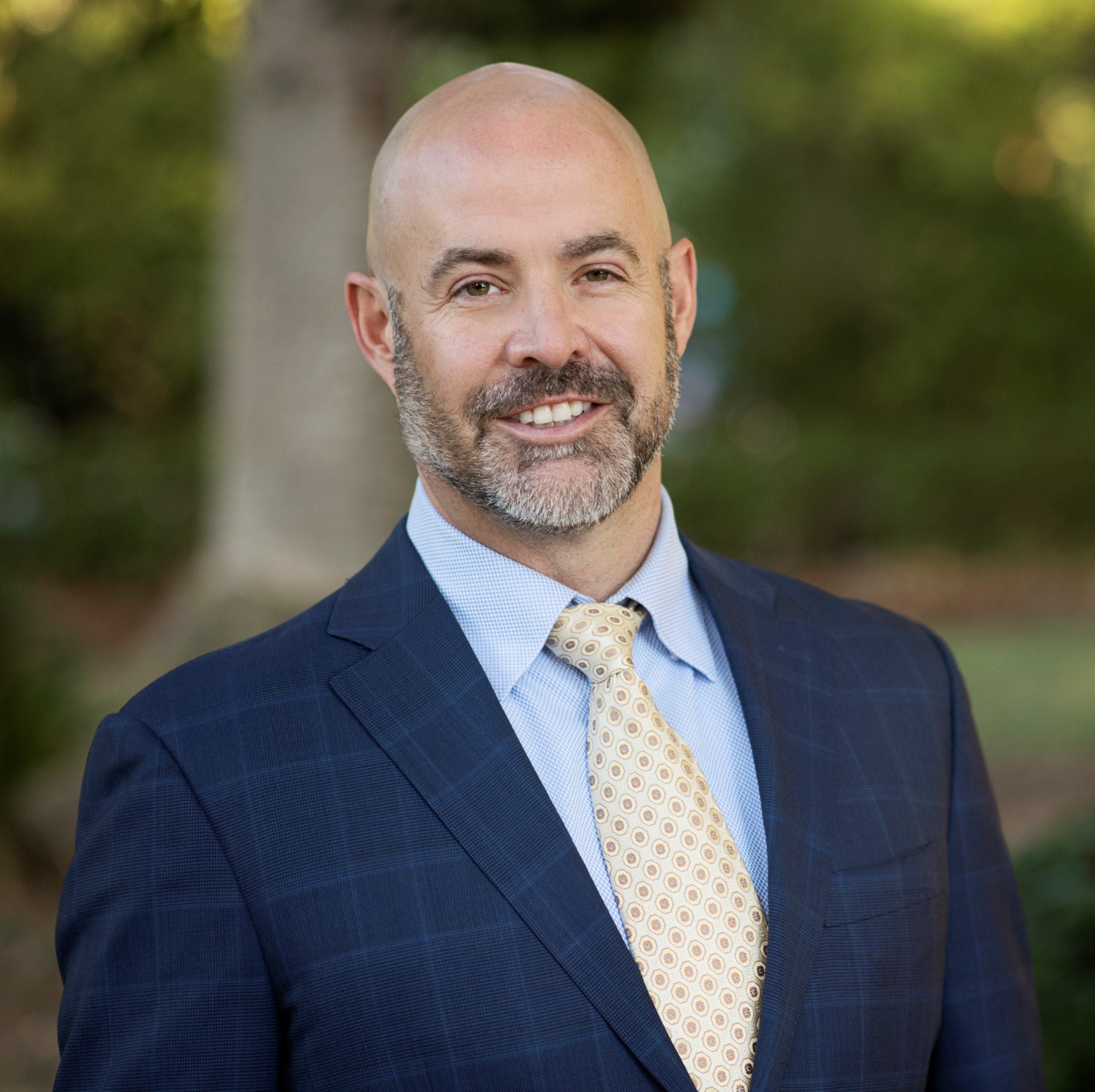
By Gwyneth K. Shaw
Vincent Joralemon ’24 isn’t just the new director of the Berkeley Center for Law & Technology’s (BCLT) Life Sciences Law & Policy Center — he’s a beneficiary of the innovative initiative that’s made a big splash in the four years since its debut.
After earning an undergraduate degree at UC Berkeley and teaching high school biology in New York for nearly a decade, Joralemon eyed law school as his next step. Given his science background, UC Berkeley Law, with its vaunted intellectual property offerings, was an obvious fit.

In his 2L year, Professor Peter S. Menell and Allison Schmitt ’15, the center’s founding director, co-taught the two-semester Life Sciences & Innovation Workshop — bringing law and Ph.D. students together to develop a set of detailed case studies on breakthrough innovations in the life sciences ecosystem.
“The first week of class, they told us we needed to pick topics for our research, and psychedelics were on the list,” Joralemon says.
He’d been interested in the topic, particularly after reading journalist Michael Pollan’s book How to Change Your Mind and knowing a bit about the growth of ketamine as a treatment for mental health conditions. When the opportunity presented itself in the class, Joralemon pounced.
“That just changed my life,” he says. “I found something that, at every free moment, I wanted to research, to go deeper and deeper on.”
Joralemon spent his 3L year at Harvard Law School and was a student fellow at the Petrie-Flom Center for Health Law Policy, Biotechnology, and Bioethics, where psychedelics research is a focus area. While there, the research he’d started at UC Berkeley law “blossomed into this cool academic project.”
He’d never considered academia, but now a path was opening up.
“I’d found a topic I really felt passionate about — I knew this was going to help make the world a better place,” Joralemon says. “And it wasn’t a crowded field. There weren’t a ton of people talking about it. I could tell that in a couple of years I could discuss this topic with the experts.”
But first, he reasoned, he needed some time practicing law, so he joined Cravath, Swaine & Moore’s New York office.
“On day one, they brought me in and asked me what I was interested in,” Joralemon says. “I mentioned psychedelics, and they said, ‘We don’t get much of that, but if do we’ll send it your way.’”
Just a few months later, Joralemon was working on a pharmaceutical deal when he took a closer look at the chemical formulas of the company his client was acquiring. Elements looked familiar, and it turned out the company was producing non-hallucinogenic psychedelic drugs.
“These drugs modulate the same neurotransmitters that psychedelics modulate, but they don’t give you the ‘trip’ of traditional psychedelics, and they have all these really promising therapeutic benefits,” he says. “It was very affirming to see this class of drugs that I had spent so much time researching be a part of major deals at a firm like Cravath.”
All the while, Joralemon kept in touch with his BCLT mentors. And when Schmitt departed to take a tenure-track job at the University of Oregon Law School, he swallowed considerable nervousness, applied — and got the job.
An ideal match

BCLT Executive Director Wayne Stacy says Joralemon is a perfect fit for the Life Sciences Law & Policy Center. Since launching in late 2021, it’s bloomed into an extensive hub equipped to help practitioners, students, scholars, and life sciences entrepreneurs alike tackle important issues impacting the future of the life sciences industries — including drug pricing, current regulatory challenges, and how AI should be responsibly incorporated into life sciences applications and companies.
The center offers wide-ranging programs, including a robust life sciences-oriented law curriculum, multiple annual conferences, and cutting-edge research.
“Vincent’s unique combination of scientific training, distinguished legal education at Berkeley Law and Harvard, and practical experience at Cravath brings invaluable expertise to BCLT,” Stacy says. “His scholarship on psychedelics, FDA reform, and AI in life sciences has positioned him as a leading voice in the field, strengthening our programs as we prepare students to navigate the rapidly evolving regulatory, intellectual property, and ethical challenges driven by innovation in biotechnology, AI, and health data.”
Menell, a titan of tech law and one of BCLT’s architects, says Joralemon’s experience at the Petrie-Flom Center and his time at Cravath working with David Kappos ’90 gave him “a wealth of experience and insight into the life sciences field.” Kappos, a Cravath partner and co-chair of the firm’s IP practice, served as Undersecretary of Commerce for Intellectual Property and Director of the United States Patent and Trademark Office from 2009 to 2013.
“Vince was a standout during the formative years of BCLT’s Life Sciences Law & Policy Center, where he authored an excellent case study on life sciences innovation and was a charismatic leader in our intellectual property program,” Menell says. “Our students are fortunate to have Vince’s curricular offerings, mentorship, and leadership in building out the center.”
Vern Norviel, a longtime Berkeley Law lecturer and Wilson Sonsini partner, co-founded the center after passing the special parking spaces UC Berkeley reserves for its Nobel laureates and envisioning a bridge between the law school and the panoply of life sciences research across the larger campus.
He and his firm were among the founding donors for the center, alongside Genentech, Gilead, and Weil Gotshal & Manges. BCLT’s faculty co-directors, including Menell and Professor Robert P. Merges, also played integral roles.
Norviel says the center’s trajectory has exceeded his high expectations.
“The law school has already become an integral part of the life science community, because you see many lawyers that have gone through Berkeley, both in law firms and in companies,” he says. “It’s become an accepted thing now in the venture community, and I think large companies recognize that if it came out of this program, it must be solid. When you include the classes being offered in this sector, I just don’t know how much better a law school could be doing.
“There’s nothing like Berkeley — not even close. This program is very special.”
Branching out
Now that he’s settling into the job, Joralemon says he plans to focus on four major areas.
The first is, not surprisingly, psychedelics and novel therapeutics. Quantum leaps are here or on the horizon for conditions like treatment-resistant depression and Alzheimer’s disease, and Joralemon wants BCLT on the leading edge.
“We’re Berkeley — we should be at the center of this,” he adds. “I’m very excited to build that out, especially with the bigger psychedelic program on campus. I really want to create that partnership.”
The second is addressing the gaps between incentives to develop new treatments and the innovative breakthroughs happening every day, and to help identify the balancing point between protecting the public and opening access to new therapies.
The third is to try and close another gap: The schism between the academic and scientific establishment and the kind of “Make America Healthy Again” mindset personified by U.S. Health and Human Services Secretary Robert F. Kennedy Jr. At a recent Harvard conference, Joralemon says he noticed there was no voice from that camp and wondered what it would take to bring in that perspective while remaining grounded in facts and evidence.
“I think there’s a way to get that trust back without tossing out academic rigor,” he says. “It’s important for us to engage in finding a middle ground as the academy and as an institution, particularly for health law.”
Joralemon’s fourth area of emphasis is rooted in intellectual property and privacy. As companies gather more and more information from consumers — particularly health data, including biometrics — managing it is of equal importance.
“Data governance is going to become a huge problem, and a big legal problem to work out, because right now there’s not any comprehensive laws in the United States that are like what Europe has,” he says. “As an academic center, we can do a lot to help companies be compliant and understand the best practices while explaining to the public what the actual costs are of sharing their information.”
He also hopes to make what the center is doing as accessible as possible, so consumers can understand what’s happening as well as those in the industry can.
“Because I worked in public education and come from a background where nobody was a lawyer, I think about whether my mom or my aunt can understand something I’ve written,” Joralemon says. “That is a North Star in terms of the things that I want to build out here. I want to involve practitioners, and I want to involve people with legal training, but I also want to help explain the law to people who haven’t been to law school. That’s an important civic duty that we as lawyers have.”
Joralemon’s sense of the center’s public mission is also driven by his own experience as a beneficiary of California’s public school system, from kindergarten through law school.
“What the University of California does is incredible and almost unfathomable to me,” he says. “And I really believe in public education, so it’s great to be a part of something that I feel so strongly about.
“It’s really special to be able to come back here.”